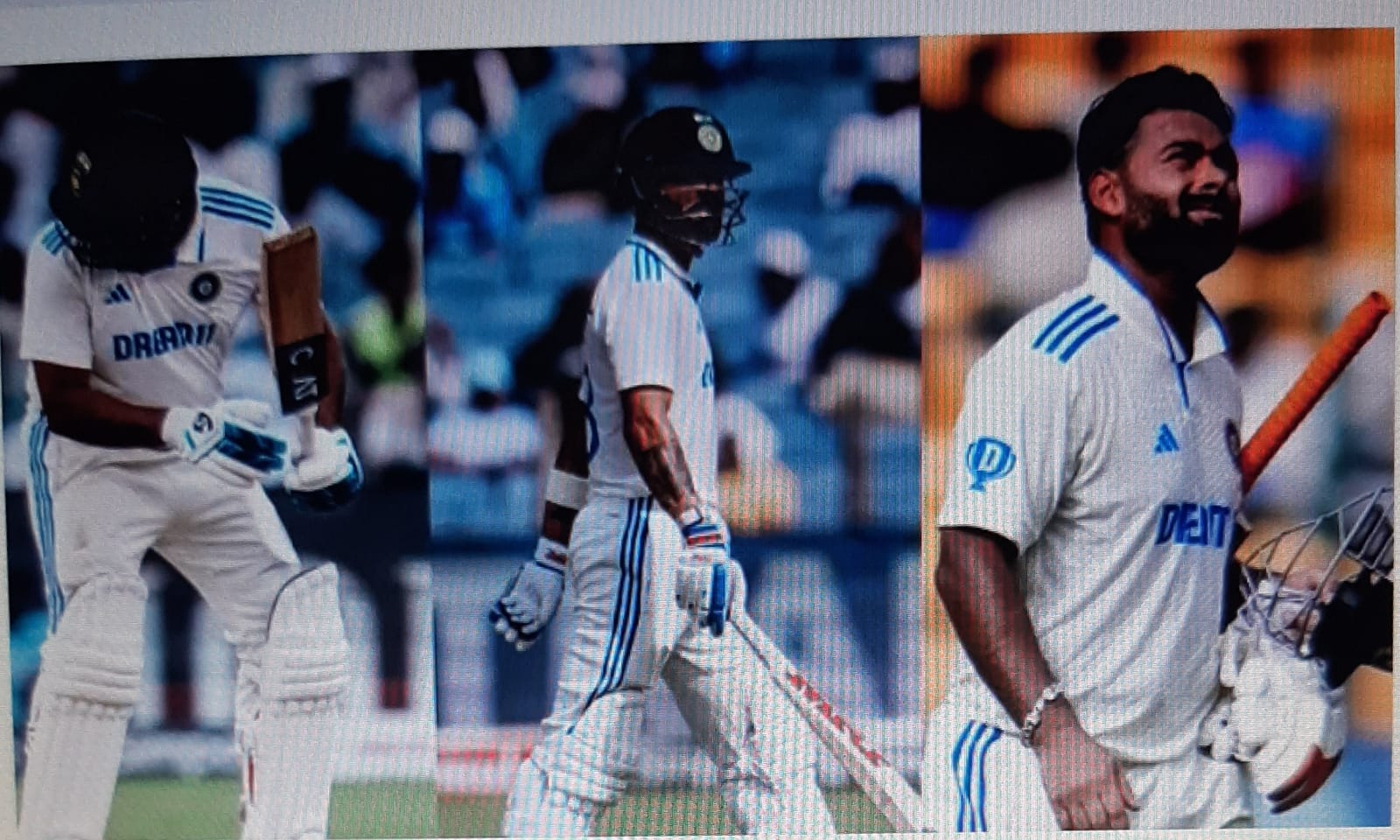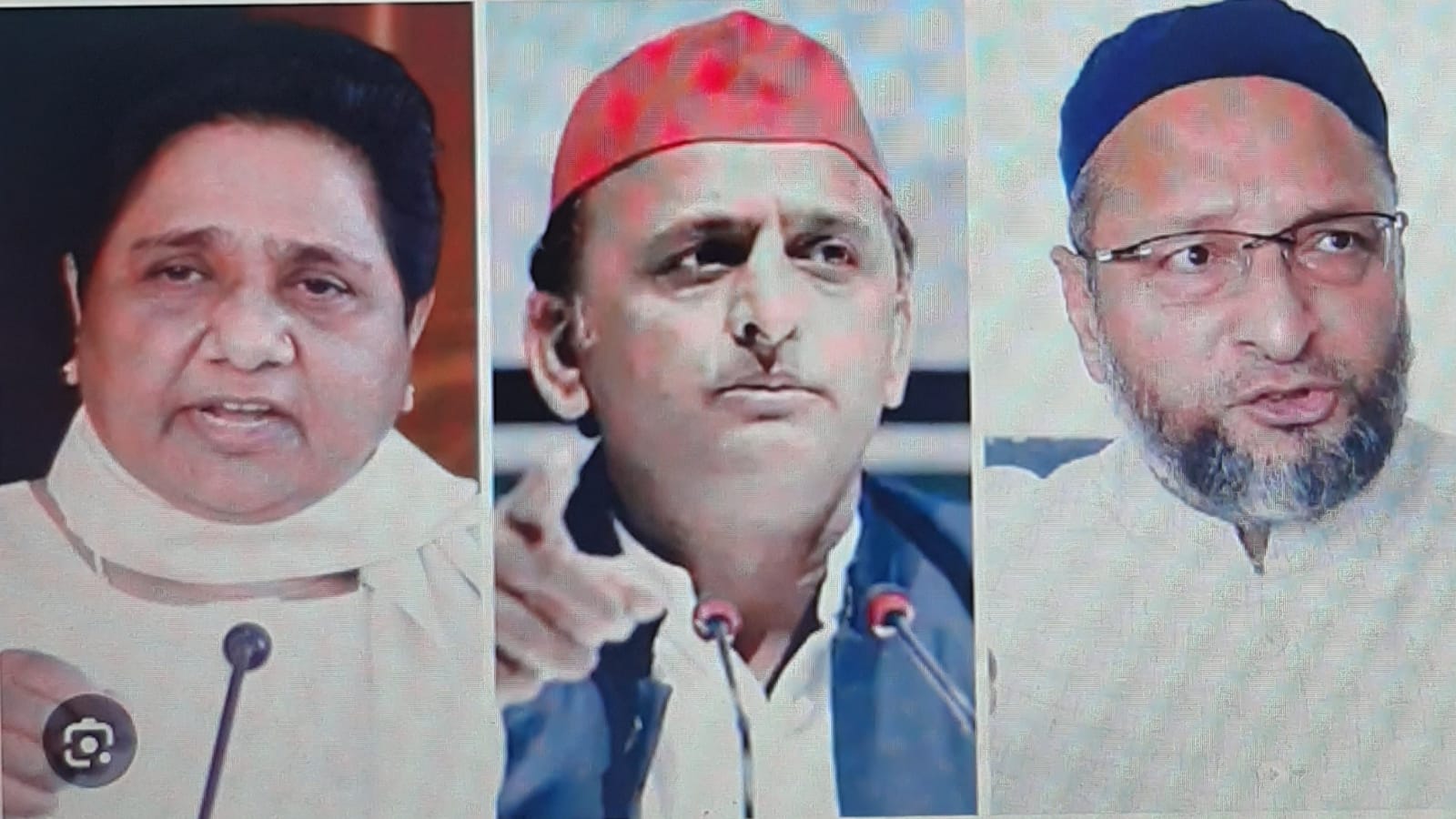
This series is not merely a setback—it is a potential inflection point. Indian cricket has faced tough moments in the past and has emerged stronger each time, but only because we have confronted our weaknesses honestly. Instead of dismissing this whitewash as an anomaly, let us see it as a chance to introspect and rebuild. The fans deserve a team that not only plays with skill but with heart, humility, and unrelenting determination, writes Dr. Kanishka Pandey
The Test series against New Zealand on home soil was supposed to showcase India’s strength and strategic depth. Instead, it spiralled into an unprecedented whitewash, with Team India losing the three-match series 3-0—a first in our history on home soil. The scores tell a sobering tale: an 8-wicket loss in the first game, a staggering 113-run defeat in the second, and a 25-run fall in the final match. But what stands out most starkly is the haunting figure of 46, marking India’s lowest Test score ever. This series, once brim full of expectations, has left fans and analysts alike questioning the state of Indian cricket.
When a “Bad Day” Becomes a Pattern
Captain Rohit Sharma’s post-match response encapsulated what many saw as an overly casual approach to a significant crisis: “Out of 365 days, we can afford a few bad ones.” But such a statement, offered in the aftermath of repeated defeats, struck many as a dismissal rather than an acknowledgment of the team’s responsibility. Bad days are indeed part of the game, but to shrug off a string of defeats with such nonchalance does not reflect accountability. Instead, it raises questions about the very leadership and vision guiding the team. This was not a mere hiccup—it was a series of systematic failures that merit introspection, not deflection.
A Deep-Rooted Disconnect
The disconnect between the team’s potential and its performance in this series has left fans, analysts, and former players alike perplexed. India’s cricketing icons draw colossal salaries, enjoy unparalleled fame, and are entrusted with the national pride every time they step onto the field. But this series has shown that, perhaps, somewhere along the line, that pride and responsibility may have been sidelined in favour of comfort and complacency. The performance on the field was plagued by visible flaws in technique, mental resilience, and adaptability. Instead of strategic depth, we saw a team that crumbled under pressure, lacking both the grit to endure and the skill to counter challenging conditions.
Callous Attitudes and Questionable Motivation
Perhaps more troubling than the on-field performance, however, has been the off-field attitude. Recently, our star players like Rohit Sharma and Virat Kohli turned down the opportunity to play in the Duleep Trophy practice matches, reportedly citing a “lack of motivation.” They continuously produced dismal performances. This is a concerning revelation that sheds light on a sense of entitlement and overconfidence. If our players are unwilling to put in the hard work to sharpen their skills and refine their strategies, then questions must be asked about their commitment. Great athletes are not just created in front of millions on the main stage; they are forged in the grind, in practice matches, and in relentless pursuit of excellence. This reluctance to prepare reflects a troubling disconnect—a callous attitude that is out of sync with the humility and hunger that should define any representative of India.
The Technical and Strategic Shortcomings
From a purely cricketing standpoint, this series laid bare test cricket deficiencies that have gone unaddressed. The batsmen repeatedly fell to predictable bowling strategies, often succumbing to basic errors rather than clever opposition tactics. Where was the adaptability, the counter-strategy, or even the tenacity to play through a tough spell? Each loss was a painful reminder that mental fortitude, a hallmark of successful teams, was noticeably absent. Our players seemed to lack the spirit to fight for every run, to endure every challenge, and to claw back from difficult positions. This was not just a failure of skill; it was a failure of intent.
A Wake-up Call for the BCCI
The Board of Control for Cricket in India must now act decisively. Selection processes need a serious overhaul, moving away from fame or past accomplishments to a focus on recent form, discipline, and demonstrated work ethic. Too often, selection has rewarded reputation over merit, creating a comfortable zone that breeds complacency. If players feel untouchable, immune to scrutiny, then it is inevitable that complacency and carelessness will set in. The BCCI must foster a culture that values resilience and accountability, where wearing the Indian crest is seen as an honour that must be earned every single day.
Coaching, Culture, and Consequence
Furthermore, coaching strategies must be reassessed. Building a cohesive, resilient team culture goes beyond technical coaching; it demands leadership that instils a collective pride, humility, and adaptability within the squad. Players must be reminded that they represent the aspirations of over a billion people. Cricket in India is not just a sport; it is a symbol of national identity, a unifying force. It is time we instil in the team a sense of duty that transcends fame and wealth.
Chasing the Fast Lane
One of the most pressing concerns for Indian cricket today is the apparent shift in focus among our emerging generation of players. Increasingly, they seem to be gravitating toward the thrill and instant fame associated with shorter formats like T20s and ODIs, where speed, big-hitting, and quick success often overshadow the patience and endurance essential to Test cricket. Many young cricketers, lured by the glamour and immediate rewards of these formats, might be neglecting the more nuanced skills and temperament that are the hallmarks of Test cricket.
As noted by numerous veterans and analysts, this shift toward a “fast and furious” style could compromise the development of well-rounded cricketers who understand and respect the endurance, technical depth, and strategic foresight that Test cricket demands. While T20s and ODIs indeed bring fame and marketability, they can also promote a brand of play that emphasizes momentary victories over sustained, long-form consistency. As a result, the country’s cricketing future may be at risk of prioritizing entertainment over excellence, leading to players less prepared for the complexities and resilience that Test cricket, as the true test of skill, requires.
Turning Defeat into an Opportunity
This series is not merely a setback—it is a potential inflection point. Indian cricket has faced tough moments in the past and has emerged stronger each time, but only because we have confronted our weaknesses honestly. Instead of dismissing this whitewash as an anomaly, let us see it as a chance to introspect and rebuild. The fans deserve a team that not only plays with skill but with heart, humility, and unrelenting determination. Cricket deserves a team that honours the crest with pride, knowing that every match, every run, every wicket carries the hopes and dreams of an entire nation.
46 All Out—A Number That Demands Answers
The record-breaking low of 46 is not a statistic that will fade. It is a scar, a reminder, and a question that Indian cricket must confront just like the Brazilian football teams’ humbling at the hands of Germany in 2014 and Manchester United perishing to Liverpool. How will we respond? True greatness lies not in ignoring our failures but in owning them, learning from them, and rising above them.
In the aftermath of this humbling whitewash by the Black Caps, Indian cricket faces a crucial crossroads. This defeat is more than a tally of losses or a singular low score, it is a reflection of deeper issues that must be addressed with honesty and resolve. Accountability is not just the responsibility of the players but extends to selectors, coaches, and the cricketing administration that shapes the team’s ethos and direction. This is a moment for serious introspection, not only to acknowledge what went wrong but to rebuild a mindset of resilience, discipline, and commitment. Indian cricket has a legacy that fans hold dear—now is the time to honour it by ensuring our team embodies the grit, skill, and humility worthy of that legacy. This series has been a blemish on Indian cricket, but whether it marks the beginning of a decline or the dawn of a new, stronger era is in our hands. I say, we must choose a path of accountability, resilience, and growth.
(Dr. Kanishka Pandey, Head- Centre for Sports Research, IMT Ghaziabad)









